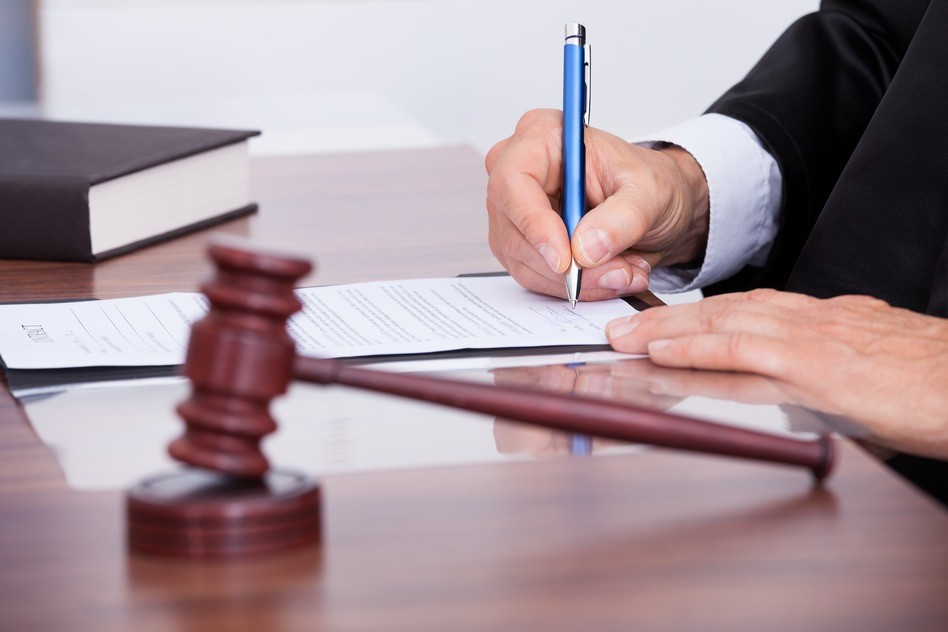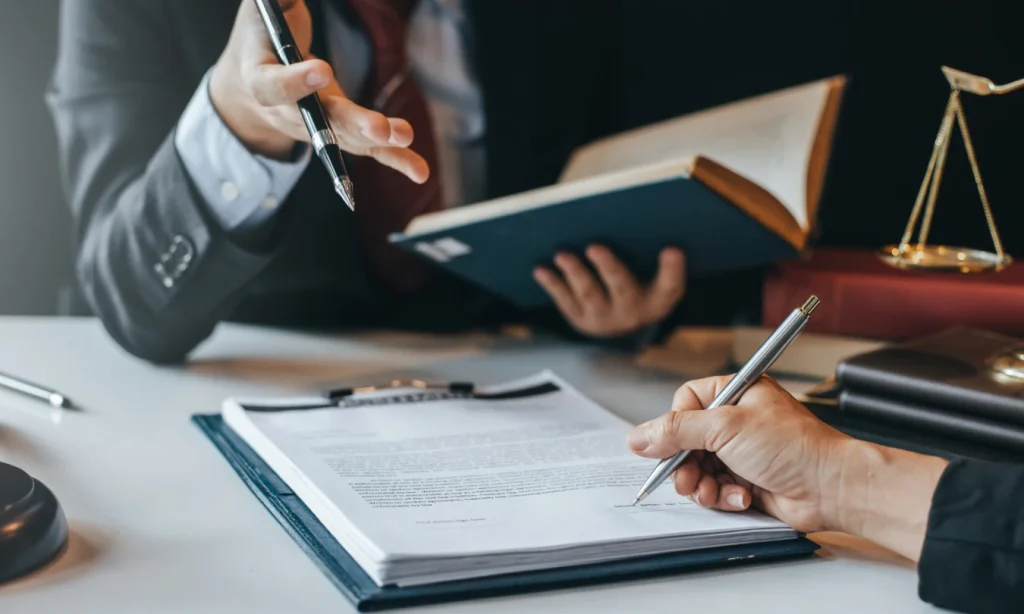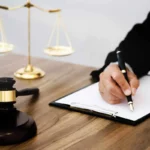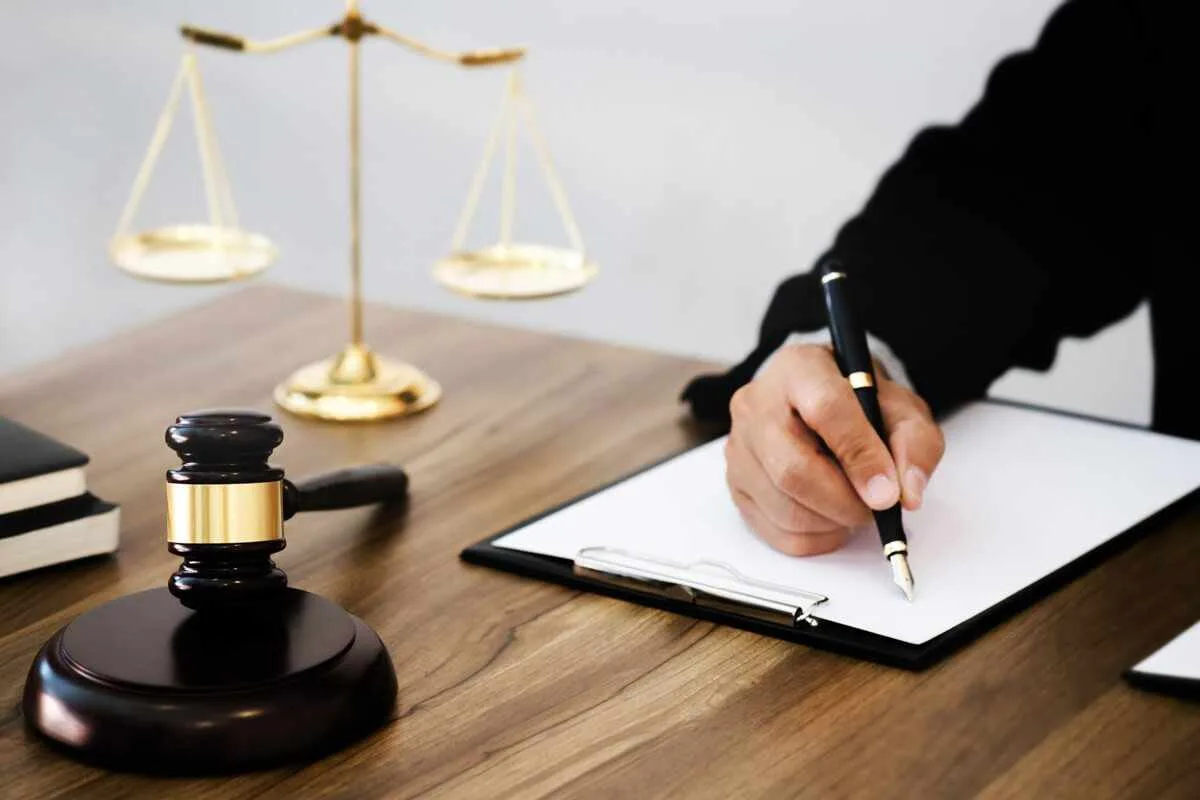A litigation lawyer Sydney serves as your strategic partner throughout the entire court process, from initial document preparation to final representation. They transform complex legal procedures into manageable steps, ensuring you meet critical deadlines and comply with court requirements.
Court proceedings preparation demands meticulous attention to detail that most individuals lack without professional training. A skilled lawyer drafts essential documents like Statements of Claim and Notices of Defence whilst navigating intricate litigation lawyer sydney and practice directions. They assess your case’s strengths, identify potential weaknesses, and develop persuasive arguments tailored to judicial expectations.
Legal representation Sydney extends beyond paperwork. Your lawyer anticipates procedural challenges, advises on settlement opportunities through mediation or arbitration, and represents your interests during hearings. This comprehensive support significantly increases your prospects of achieving a favourable outcome, as experienced lawyers understand how courts evaluate evidence and apply the “balance of probabilities” standard in civil matters.
What Legal Advice Can You Expect from a Litigation Lawyer During Court Preparation?
A litigation lawyer provides comprehensive legal advice court preparation by first identifying which laws and procedural rules apply to your specific case. They examine the relevant legislation, court practice directions, and case law that will govern your proceedings, translating these complex legal frameworks into practical guidance you can understand and act upon.
Understanding Time-Sensitive Legal Requirements
Sydney litigation laws impose strict deadlines for initiating legal action or responding to claims. Your lawyer will identify critical timeframes such as:
- Limitation periods for commencing proceedings (typically ranging from 3 to 6 years depending on the claim type)
- Response deadlines after receiving a Statement of Claim (usually 28 days)
- Filing requirements for defence documents and counterclaims
- Discovery obligations and when documents must be exchanged
Missing these deadlines can result in your claim being dismissed or a default judgment entered against you. Litigation lawyer guidance ensures you understand not just when documents are due, but also how long preparation realistically takes, allowing sufficient time for drafting, review, and filing.
Navigating Court Rules and Procedural Requirements
Each court in Sydney operates under specific procedural rules that dictate how cases progress. The Supreme Court, District Court, and Local Court each have distinct requirements regarding:
- Document formatting and structure
- Service of documents on opposing parties
- Filing fees and payment methods
- Appearance requirements and representation protocols
Your lawyer decodes these procedural requirements, explaining which rules apply to your matter and what compliance looks like in practice. They identify potential procedural pitfalls that could delay your case or weaken your position if overlooked.
Clarifying Complex Legal Concepts
Legal proceedings involve terminology and concepts that can seem impenetrable to those without legal training. Your litigation lawyer breaks down complex legal requirements into understandable terms, explaining:
Jurisdictional issues – whether your case belongs in a particular court based on claim value or subject matter
Causes of action – the specific legal grounds on which your claim is based and what elements you must prove
Evidentiary requirements – what types of evidence the court will accept and how to properly present it
Procedural fairness obligations – your rights and responsibilities
How Do Litigation Lawyers Assist in Preparing Key Legal Documents for Your Case?
A litigation lawyer drafts and prepares all essential court documents required to commence or defend your case. These documents form the foundation of your legal position and must meet strict technical requirements set by the courts.
Essential Documents Your Lawyer Will Prepare
Statements of Claim Sydney courts require must clearly outline your case against the defendant. Your lawyer structures this document to identify all parties involved, specify the legal basis for your claim, detail the facts supporting your position, and state the remedy you seek. The statement must be precise enough to inform the defendant of the case they need to answer whilst providing sufficient detail to support your legal arguments.
A Summons accompanies your Statement of Claim when initiating proceedings. This formal court document commands the defendant to appear and respond to your claim within a specified timeframe. Your litigation lawyer ensures the summons contains all mandatory information, including the correct court registry details, proper party names, and accurate filing references.
Notices of Defence represent the defendant’s formal response to claims made against them. If you’re defending a case, your lawyer prepares this document to address each allegation in the Statement of Claim. The notice must admit facts that are true, deny allegations you dispute, and state any additional facts supporting your defence. Your lawyer may also include counterclaims if you have grounds to make claims against the plaintiff.
Technical Compliance Requirements
Legal document preparation demands strict adherence to court rules and practice directions. Sydney courts maintain specific formatting requirements covering:
- Page margins and line spacing specifications
- Font types and sizes for body text and headings
- Paragraph numbering systems
- Methods for annexing exhibits and supporting documents
- Filing procedures for electronic and paper submissions
Your litigation lawyer stays current with these technical requirements, which change periodically through court practice notes and procedural updates. A single formatting error can result in documents being rejected by the registry, causing delays to your case and potentially missing critical deadlines.
Drafting for Strategic Advantage
Skilled legal document preparation goes beyond meeting technical requirements. Your lawyer crafts documents to present your case in the strongest possible light whilst remaining truthful and accurate. They select language carefully to frame issues favourably, anticipate potential defences or claims, and structure arguments logically to persuade the court.
How Do Litigation Lawyers Help Navigate Case Management Processes to Your Advantage?
Case management processes are structured procedures employed by Sydney courts to efficiently move cases toward resolution. A litigation lawyer plays a crucial role in guiding you through these administrative frameworks, ensuring that your matter progresses smoothly while also identifying opportunities to resolve disputes before trial. The main objective of these processes is to reduce court backlogs and encourage parties to settle their differences through negotiation rather than expensive hearings.
Understanding the Case Management Framework
Courts implement case management with specific goals in mind. The system aims to achieve the following:
- Identify the real issues in dispute early on
- Eliminate unnecessary procedural steps
- Set realistic timetables for each stage of litigation
Your lawyer strategically uses this framework to position your case favourably while also complying with all court requirements.
The case management process typically begins shortly after proceedings commence. Courts issue directions that set deadlines for filing evidence, exchanging documents, and completing other preparatory steps. Your litigation lawyer closely monitors these deadlines, ensuring that you never miss a critical date that could weaken your position or result in penalties.
Preparing for Pre-Trial Conferences
Pre-trial conferences are important moments where judges assess case readiness and encourage settlement discussions. Your lawyer prepares you thoroughly for these conferences, which usually take place several weeks before the scheduled hearing date. During preparation, they review:
- The strengths and weaknesses of your evidence
- Realistic settlement ranges based on similar cases
- Potential compromises that might satisfy both parties
- Procedural issues that could affect trial timing
These conferences operate differently from formal hearings. Judges adopt a more facilitative role, exploring whether parties can reach an agreement without proceeding to trial. Your lawyer clearly articulates your position while also remaining open to reasonable settlement proposals that serve your interests.

Navigating Status Conferences Effectively
Status conferences occur at various points throughout litigation to review progress and address emerging issues. Courts use these conferences to ensure that cases remain on track and parties comply with previous directions. Your litigation lawyer attends these conferences prepared to update the court on completed steps and negotiate extensions if legitimate circumstances require additional time.
During status conferences, judges may inquire about settlement prospects. Your lawyer responds strategically, neither appearing overly eager to settle (which might encourage lowball offers) nor completely dismissive of negotiation (which could frustrate the court). This balanced approach maintains your credibility while preserving room for potential settlements.
What Alternative Dispute Resolution Options Can a Litigation Lawyer Advise You On?
A litigation lawyer can guide you through alternative dispute resolution Sydney options that may resolve your dispute without proceeding to a full court hearing. These methods often save time, reduce legal costs, and provide more flexible outcomes than traditional litigation.
Mediation
Mediation offers a collaborative approach where an independent third party facilitates discussions between disputing parties. The mediator doesn’t make decisions but helps both sides explore potential solutions and reach a mutually acceptable agreement. Your litigation lawyer will prepare you for mediation sessions by reviewing your position, identifying areas for potential compromise, and developing negotiation strategies. Many Sydney courts now require parties to attempt mediation before proceeding to trial, making it an essential step in the litigation process.
The confidential nature of mediation creates a safe environment for open discussions. Parties can discuss settlement options without fear that their statements will be used against them in court if mediation fails. Your lawyer will attend mediation sessions with you, providing legal advice throughout the process and ensuring any proposed settlement protects your interests. Successful mediation results in a binding settlement agreement that both parties must honour.
Arbitration
Arbitration provides a more formal alternative where an arbitrator (or panel of arbitrators) hears evidence and makes a binding decision on the dispute. Unlike mediation, arbitration resembles a court hearing but typically follows less rigid procedures and offers greater scheduling flexibility. The arbitrator’s decision, called an award, is legally enforceable and generally cannot be appealed except in limited circumstances.
Your litigation lawyer will advise whether arbitration suits your particular dispute. Commercial contracts often include arbitration clauses requiring parties to resolve disputes through this method. Arbitration works particularly well for technical disputes where specialist arbitrators with industry expertise can better understand complex issues than a judge might.
Key Advantages of Alternative Dispute Resolution
Litigation lawyers recommend alternative dispute resolution for several strategic reasons:
- Cost efficiency – Mediation and arbitration typically cost significantly less than full court proceedings
- Time savings – Disputes can be resolved in weeks or months rather than years
- Privacy – Proceedings remain confidential, unlike public court hearings
- Control – Parties maintain more control over the process and outcome
- Preserved relationships – Collaborative approaches can maintain business or personal relationships
How Do Litigation Lawyers Represent Clients During Court Proceedings?
Litigation lawyers provide comprehensive court representation by acting as your voice and advocate throughout trial proceedings. They handle all aspects of presenting your case to the judge, from introducing evidence to making legal arguments that support your position.
Presenting Evidence Through Multiple Channels
Your lawyer presents evidence in several ways during trial. Witness testimony forms a primary method, where your legal representative calls relevant witnesses to the stand and guides them through their evidence using carefully structured questions. These witnesses might include expert witnesses who provide specialised knowledge, or fact witnesses who observed events relevant to your dispute.
- Affidavits: Your litigation lawyer prepares these sworn written statements that detail facts supporting your case. The court accepts affidavits as formal evidence, and in many instances, they replace the need for witnesses to appear in person. Your lawyer ensures each affidavit contains precise, relevant information presented in the proper legal format.
- Documentary Evidence: Your lawyer introduces contracts, emails, photographs, financial records, and other documents that substantiate your claims. They authenticate these materials and explain their significance to the court, connecting each piece of evidence to the legal issues at hand.
- Presenting Evidence Through Multiple Channels: When it comes to presenting evidence in court, your lawyer employs various methods to ensure a robust presentation of your case.
Cross-Examination Sydney Courts
Cross-examination represents one of the most critical skills your litigation lawyer employs during proceedings. When the opposing party presents witnesses, your lawyer has the opportunity to question them to test the reliability and credibility of their testimony. Through strategic questioning, your lawyer can:
- Expose inconsistencies in witness statements
- Challenge the accuracy of opposing evidence
- Highlight gaps in the other party’s case
- Demonstrate bias or unreliability in testimony
Effective cross-examination in Sydney courts requires deep knowledge of evidence rules and courtroom procedure. Your lawyer knows which questions are permissible, how to phrase inquiries to elicit helpful responses, and when to object to improper questions from opposing counsel.
Crafting Persuasive Legal Submissions
Legal submissions form the framework through which your lawyer presents arguments to the court. These oral or written presentations explain how the law applies to the facts of your case. Your litigation lawyer analyses relevant legislation, case precedents, and legal principles to construct compelling arguments that favour your position.
During opening submissions, your lawyer outlines your case and previews the evidence you
Why Is the Preparation of Affidavits Crucial in Court Proceedings?
Affidavits are sworn written statements that provide formal evidence to the court, carrying the same weight as oral testimony given under oath. These documents allow witnesses to present their version of events, observations, or expert opinions without necessarily appearing in person at trial. It’s important to understand that sworn statements like affidavits are a critical part of this process.
The legal framework in Sydney requires affidavits to meet strict formatting and content requirements. Each statement must be made voluntarily, sworn before an authorised person (such as a solicitor or justice of the peace), and clearly identify the deponent (the person making the statement). The document must contain only facts within the deponent’s personal knowledge, avoiding hearsay, opinions (unless from an expert witness), or argumentative language.
What Makes an Affidavit Legally Effective?
Well-prepared affidavits can determine the outcome of your case before you even step into the courtroom. Courts rely heavily on these sworn statements to establish facts, particularly in interlocutory applications where judges make decisions based on written evidence rather than oral testimony.
A litigation lawyer experienced in affidavit preparation Sydney understands how to structure these documents for maximum impact. They organise information chronologically, use clear and concise language, and ensure each paragraph addresses a single fact or topic. This precision prevents confusion and makes it easier for judges to extract relevant information quickly.
How Do Affidavits Strengthen Your Legal Position?
The strategic value of properly drafted affidavits extends beyond simply recording facts. These sworn statements establish a permanent record of evidence that cannot be easily contradicted or changed later in proceedings. When your opponent attempts to present a different version of events, your affidavit serves as a contemporaneous account that supports your credibility.
Court evidence presented through affidavits also allows you to:
- Introduce documentary evidence by annexing relevant documents (contracts, emails, photographs, invoices) and explaining their significance
- Present expert testimony from professionals who can provide specialised knowledge relevant to your case
- Establish timelines and sequences of events that support your legal arguments
- Address specific legal elements required to prove or defend your claim
What Risks Come with Poorly Prepared Affidavits?
Defective affidavits can severely damage your case. It’s essential to avoid common pitfalls associated with poorly prepared affidavits which may include lack of clarity, improper format, or inclusion of inadmissible evidence.
How Do Litigation Lawyers Explain Standards of Proof and Possible Outcomes to Clients?
What exactly is the standard of proof in civil cases?
The standard of proof in civil cases in Sydney is called the “balance of probabilities,” which is different from criminal cases. A litigation lawyer explains that you must prove your case is more likely true than not—essentially demonstrating there’s a greater than 50% chance your version of events is correct.
This standard is crucial in every civil dispute. Unlike criminal proceedings where prosecutors must prove guilt “beyond reasonable doubt,” civil litigation requires a lower threshold. Your lawyer will clarify that the court simply needs to be satisfied that your claim is more probable than the opposing party’s version.
How does the balance of probabilities work in practice?
The balance of probabilities standard means the judge weighs the evidence presented by both sides and determines which account is more convincing. A litigation lawyer helps clients understand this isn’t about absolute certainty—it’s about tipping the scales in your favour through credible evidence and persuasive arguments.
Your lawyer will assess the strength of your evidence against this benchmark. They’ll identify which pieces of evidence carry the most weight and explain how the court is likely to evaluate conflicting testimonies, documents, or expert opinions. This analysis helps you grasp whether your case meets the required threshold before investing time and resources in court proceedings.
What factors influence how courts assess the balance of probabilities?
Litigation lawyers explain that judges consider several elements when weighing evidence:
- Credibility of witnesses – whether testimonies appear truthful and consistent, a factor that becomes especially important during workplace investigations where credibility plays a significant role.
- Documentary evidence – the reliability and authenticity of written records
- Expert testimony – the qualifications and objectivity of specialist witnesses
- Inherent probability – whether the claimed events align with common sense and experience
Your lawyer will prepare you to understand how these factors apply specifically to your situation. They’ll point out potential weaknesses in your evidence and suggest ways to strengthen your position before trial.
How do lawyers help clients understand possible case outcomes Sydney courts might deliver?
Understanding potential case outcomes Sydney litigation can produce requires realistic assessment. Your lawyer will outline the range of possibilities, from complete success to partial victories or unfavourable judgments. They’ll explain what damages or remedies you might realistically expect based on similar cases and legal principles involved.
This conversation helps manage expectations and ensures you’re aware of all potential scenarios as you navigate through the legal process.

Conclusion
Expert legal guidance from a litigation lawyer transforms court preparation from overwhelming to manageable. These professionals provide strategic advantages at every stage of your case.
The litigation lawyer benefits extend across multiple critical areas:
- Legal clarity on complex rules, deadlines, and procedural requirements
- Document precision ensuring all court filings meet legislative standards
- Strategic navigation through case management and settlement opportunities
- Professional representation during hearings with persuasive submissions
- Evidence preparation through carefully drafted affidavits and witness coordination
Court preparation Sydney requires understanding local court practices and procedures. A litigation lawyer’s familiarity with Sydney’s legal landscape provides you with insider knowledge that self-representation cannot match.
The question “How Can a Litigation Lawyer in Sydney Help You Prepare for Court Proceedings?” has a clear answer: they provide comprehensive support that significantly improves your prospects for a favourable resolution. From initial advice through to final judgment, their expertise protects your interests and maximises your chances of success in what can otherwise be an intimidating process.
See Also: How do commercial Lawyers in Sydney protect business interests in shareholder agreements?










